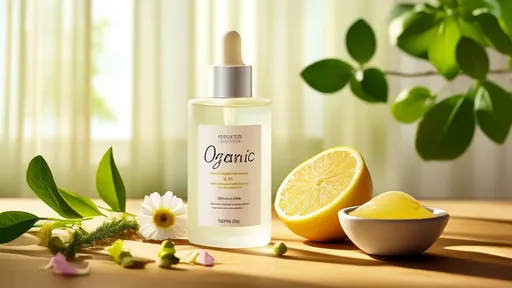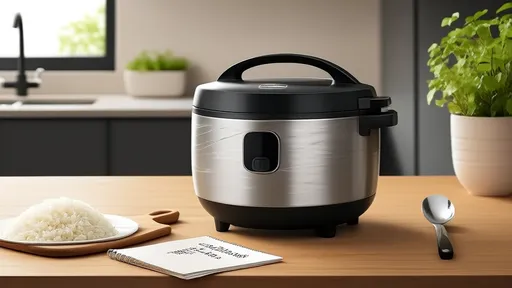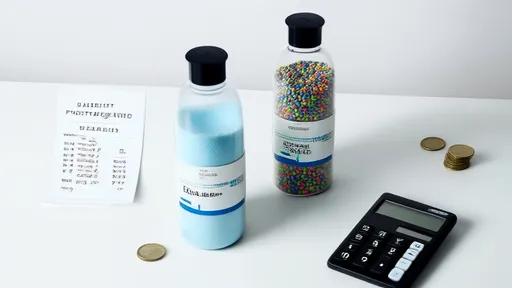In recent years, the beauty industry has seen a surge in products labeled as "food-grade" or "edible" skincare, promising safer and more natural alternatives to conventional cosmetics. Brands market these items with appealing buzzwords like "organic," "non-toxic," and "clean," often implying that if it’s safe to eat, it must be safe for your skin. But is this really the case? The truth might surprise you—and even alarm you.
The idea of food-grade skincare taps into a growing consumer desire for transparency and simplicity in beauty products. People are increasingly wary of long ingredient lists filled with unpronounceable chemicals, and the appeal of something as simple as coconut oil or shea butter is undeniable. However, the assumption that edible ingredients are inherently gentler or more effective for skincare is a dangerous oversimplification. The skin and the digestive system are fundamentally different, and what works for one isn’t necessarily suitable for the other.
One of the biggest misconceptions about food-grade skincare is that natural equals harmless. Many common kitchen ingredients, like lemon juice, apple cider vinegar, or even cinnamon, are frequently touted as miracle skincare solutions. Yet, these substances can be highly irritating or even damaging when applied to the skin. Lemon juice, for example, is extremely acidic and can disrupt the skin’s natural pH balance, leading to irritation, dryness, and increased sensitivity to sunlight. Similarly, undiluted apple cider vinegar can cause chemical burns, and cinnamon is notorious for triggering allergic reactions.
Another issue with food-grade skincare is the lack of regulation. Unlike cosmetics, which are subject to stringent safety assessments in many countries, food products aren’t tested for topical use. Just because an ingredient is approved for consumption doesn’t mean it’s been evaluated for its effects on the skin. This regulatory gap means that consumers are often left to experiment on themselves, sometimes with painful or harmful consequences.
Then there’s the question of efficacy. While some food-derived ingredients do have proven skincare benefits—like honey for its antibacterial properties or oats for soothing inflammation—many others simply don’t deliver the results they promise. The molecular structure of certain food ingredients makes it difficult for them to penetrate the skin effectively, rendering them useless or even counterproductive. For instance, applying raw avocado might feel luxurious, but its oils are too large to be absorbed deeply, leaving a greasy residue without delivering meaningful hydration.
Perhaps the most concerning aspect of the food-grade skincare trend is the potential for misinformation. Social media platforms are flooded with DIY skincare recipes that promise glowing skin with ingredients from your pantry. While some of these concoctions might be harmless, others can lead to serious skin damage over time. The belief that "natural" automatically means better can prevent people from seeking out scientifically validated treatments that could actually help their skin concerns.
It’s also worth noting that many conventional skincare products already incorporate food-derived ingredients in formulations that are actually safe and effective. The key difference is that these products are designed with dermatological science in mind, ensuring that active ingredients are delivered in the right concentrations and combinations to benefit the skin without causing harm. A cosmetic chemist can take a potent natural extract and stabilize it, enhance its absorption, or pair it with complementary ingredients to maximize its benefits—something a DIY avocado mask simply can’t achieve.
So, what’s the bottom line? While the idea of food-grade skincare might sound appealing, it’s important to approach these products and trends with a healthy dose of skepticism. Not everything that’s safe to eat is safe to slather on your face, and natural doesn’t always mean better. Instead of falling for marketing gimmicks, consumers should focus on finding well-formulated, scientifically backed skincare products that address their specific needs—whether those products contain food-derived ingredients or not.
The next time you see a skincare product boasting about being "edible" or "food-grade," remember that your skin and your stomach have very different requirements. What nourishes one might harm the other, and when it comes to skincare, science should always take precedence over trends.

By /Jun 14, 2025

By /Jun 13, 2025

By /Jun 13, 2025

By /Jun 13, 2025

By /Jun 13, 2025

By /Jun 13, 2025

By /Jun 13, 2025

By /Jun 13, 2025

By /Jun 13, 2025

By /Jun 13, 2025

By /Jun 13, 2025

By /Jun 13, 2025

By /Jun 13, 2025

By /Jun 13, 2025

By /Jun 13, 2025

By /Jun 13, 2025

By /Jun 13, 2025

By /Jun 13, 2025

By /Jun 13, 2025

By /Jun 13, 2025